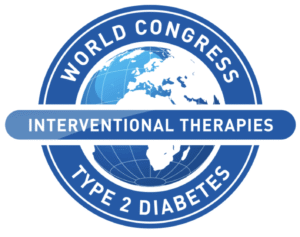🌍 Shaping the Future of Type 2 Diabetes Care. Insights from the 4th World Congress on Interventional Therapies for Type 2 Diabetes (WCITD 2019)
Led by Prof. Francesco Rubino, Chair of Metabolic and Bariatric Surgery, King’s College London
🚀 A New Era in Diabetes Treatment
At WCITD 2019, over 60 countries came together with one shared mission: to rethink the way we treat type 2 diabetes. No longer just a condition managed with pills and diets alone, diabetes is being redefined — and surgery, devices, and cutting-edge interventions are now on the front lines. From groundbreaking trials to powerful calls for global action, the event was a launchpad for new ideas, bold voices, and forward-thinking policy.
💬 Breaking New Ground: Key Highlights
- Challenging the Stigma. The ASK Study (King’s College London & University of Leeds) revealed a harsh truth: “Stigma around obesity isn’t just in society — it exists in our hospitals, clinics, and health systems.” This stigma discourages people from seeking help and limits acceptance of effective treatments like metabolic surgery. The call to action? Treat obesity with the same respect and urgency as any other chronic disease.
- Surgery That Transforms Lives New long-term results from the STAMPEDE trial (Surgical Treatment and Medications Potentially Eradicate Diabetes Efficiently- Cleveland Clinic) confirmed: Metabolic surgery not only improves blood sugar — it boosts overall quality of life. Compared to medication and lifestyle changes alone, surgical interventions show superior and lasting outcomes, including diabetes remission. This is a game-changer for millions of patients.
- Redefining Success: What Is “Remission”? Global diabetes leaders, including the American Diabetes Association (ADA), the European Association for the Study of Diabetes, and Diabetes UK, agreed on a unified definition of diabetes remission. Why it matters: A clear definition helps doctors set goals, design better treatment plans, and push for insurance coverage.
- Why Aren’t We Using Surgery More Often? Despite strong evidence, few patients get access to metabolic surgery. Why? a) Outdated guidelines b) Insurance hurdles c) Misconceptions among doctors and patients. WCITD called for immediate action to break down these barriers and bring life-changing therapies to more people, faster.
- Innovation, With Safety First. New procedures and devices for treating type 2 diabetes are on the horizon — but innovation must be safe, ethical, and evidence-based.A special multi-society task force, including the ADA, the American Association of Clinical Endocrinology, the American Society for Metabolic & Bariatric Surgery, and others, proposed new global safety standards for these therapies.
🎯 Prof. Francesco Rubino’s Vision
“Diabetes is not just about sugar — it’s about systems, biology, and bold solutions. It’s time we treated it that way.” As a pioneer in metabolic surgery, Prof. Rubino envisions a future where:
- Surgery is part of mainstream diabetes care
- Stigma is replaced with science
- And remission is not rare — it’s the goal
💡 The Bottom Line
Type 2 diabetes care is evolving — fast. With the right tools, clear policies, and a shift in mindset, we can turn today’s innovations into tomorrow’s standards.


